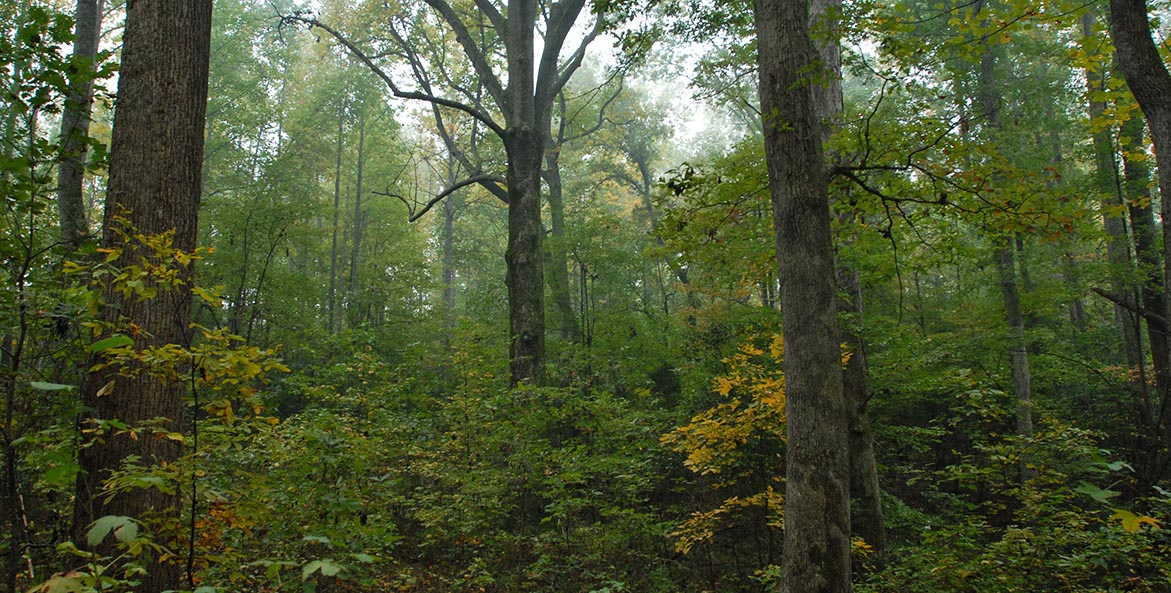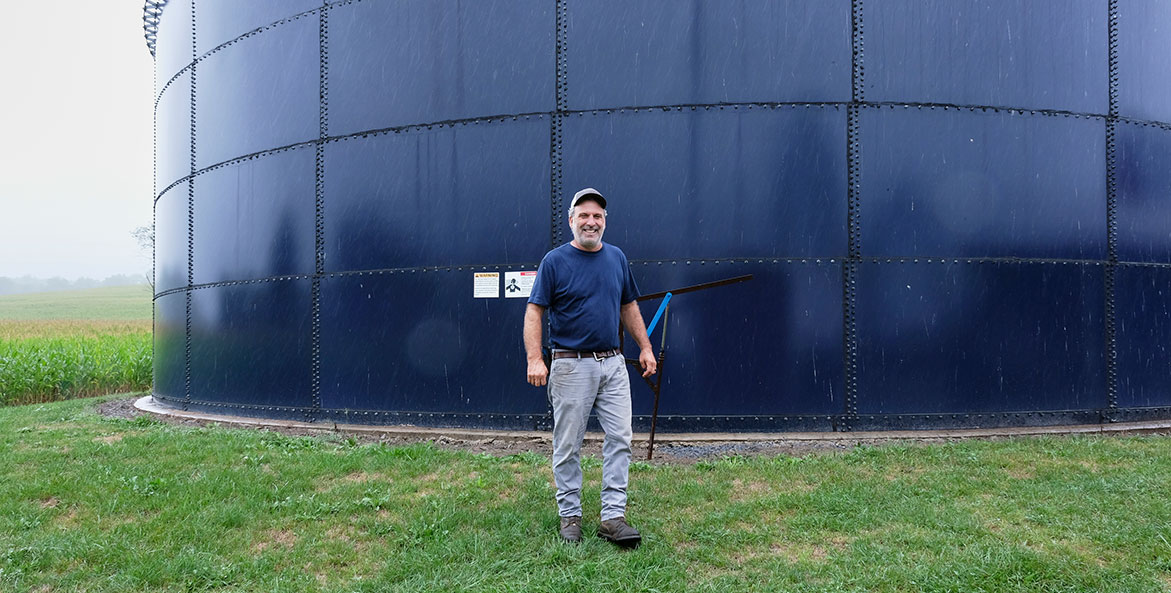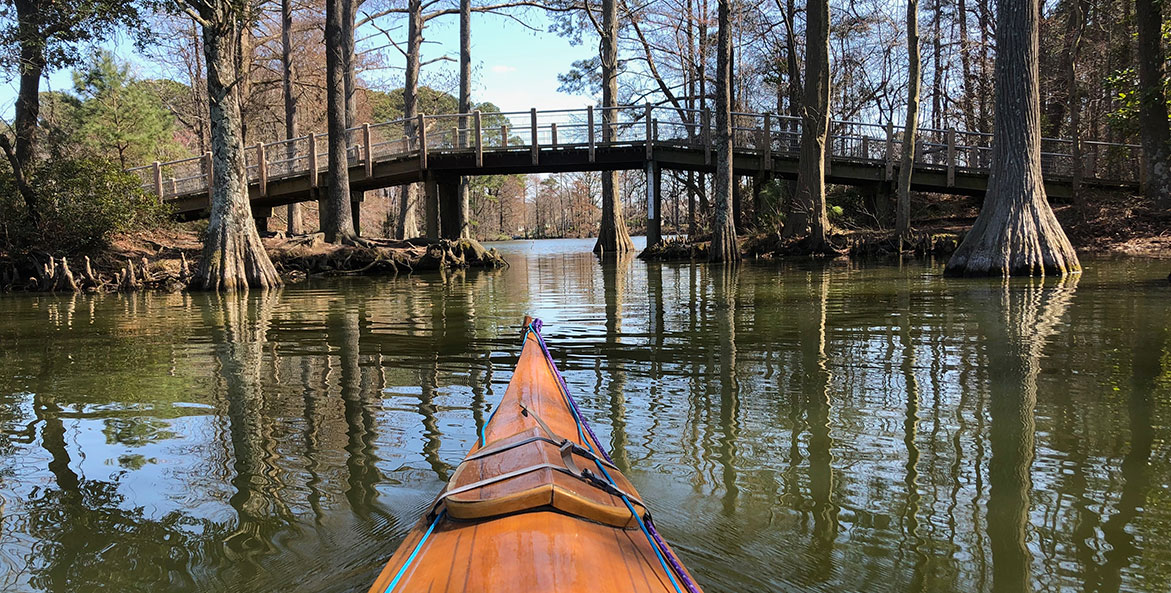Every year, advocates show up to remind decisionmakers that clean water, a healthy environment, and happy, healthy communities matter and deserve protection. This year, thousands of advocates took more than 22,000 actions for clean water at the local, state, and federal levels. While there were both wins and losses throughout the year, we’re wrapping up 2023 (and getting you excited for 2024) by highlighting some of the major wins that were accomplished thanks to you, our dedicated Bay advocates.
1. Passed Historic Forest Preservation Legislation in Maryland

Forests are one of our most successful resources in the fight to improve the water quality. Despite their value, they continue to disappear at an alarming rate, and efforts to restore them are lagging.
Bill Portlock
Trees were once again on the docket during Maryland’s 2023 General Assembly session and proved a popular topic. CBF advocates sent nearly 4,000 letters to legislators, urging them to pass SB 526 to update the state’s landmark Forest Conservation Act.
The legislation simplifies the arcane formulas used to determine replanting requirements after construction crews clear trees, while also providing flexibility to jurisdictions to address growth needs such as affordable housing and transit-oriented development. With the new protections, Maryland’s Forest Conservation Act is among the strongest in the country.
Protecting forests is an imperative step for Maryland to mitigate climate change, reduce pollution, and benefit community health. A recent report from the Chesapeake Bay Program highlighted the loss of trees in the Chesapeake Bay watershed and the results are clear: Reforestation is critical to clean water and healthy communities. The successful updates to Maryland’s Forest Conservation Act are a start in the right direction.
2. Secured Critical Sponsors for the Federal Farm Bill

Mike Marquardt at Muddy Creek Farm in Centre County, Pennsylvania.
Kelly O'Neill/CBF Staff
Passed only once every five years, the federal Farm Bill is a package of legislation that has far-reaching impacts on the way food is grown, and the health of our communities and our waterways. If you’ve followed our blog this year, you won’t have missed how critical the conservation programs in the Farm Bill are to farmers throughout the watershed as well as to our communities and waters.
Nearly 10,000 advocates added their names to our petitions and action alerts calling on members of Congress to support a strong, clean water-friendly Farm Bill.
Those actions and signatures were critical in CBF conversations with legislators, urging them to co-sponsor the Chesapeake Bay Conservation Acceleration Act. This bill packages together five key Bay-friendly updates for the 2023 Farm Bill and would ensure Bay region farmers get the support they need to help us reach critical clean water goals.
Unfortunately, the most recent Farm Bill was passed in 2018 and expired on September 30, 2023, threatening critical conservation programs that support our farmers. This is not uncommon. In fact, every Farm Bill since 2002 expired before a new bill could be passed. The bad news is Farm Bill programs would be slashed to New Deal era funding levels if a new bill is not passed before the end of 2023.
The good news is Congress included a one-year extension of the 2018 Farm Bill in their short-term budget deal on November 16, 2023, avoiding cuts to critical conservation programs. The extension holds until September 30, 2024, and Congress will continue to deliberate and work to pass the 2023 Farm Bill, with CBF and our clean water advocates pressuring them every step of the way.
3. Secured Historic Investments for Clean Water Programs in Virginia

A CBF staffer investigates the progress of a living shoreline established in Portsmouth, Virginia. Virginia's Community Flood Preparedness Fund supports nature-based projects like this that help remediate floodwaters.
Kenny Fletcher/CBF Staff
Thanks in large part to advocates like you, the Virginia General Assembly and governor accelerated efforts to achieve the pollution-reduction goals under the Chesapeake Clean Water Blueprint. Legislators worked together to reach an agreement that commits unprecedented levels of investment in farm conservation practices and other programs that reduce pollution to Virginia’s waterways and Bay.
Accelerating funding for these projects is the only way Virginia will make progress toward longstanding goals to reduce pollution under the Blueprint. This is even more important given growing challenges to Bay restoration from climate change, inflation, development, and other factors.
About 90 percent of Virginia’s remaining pollution reductions to the Bay must come from agriculture, making investment in Virginia’s successful agricultural cost-share program critical. Strong investment in resiliency projects is also urgent, particularly in nature-based practices that both help communities adapt to climate change while reducing pollution and creating habitat.
Looking Ahead to 2024
Legislative sessions in Maryland and Virginia are just around the corner, while Congress and Pennsylvania will enter the second half of their sessions, and we will need our clean water advocates with us every step of the way. Want to get involved? Sign up for our Action Network and check out our advocacy tools and resources for more information on how you can advocate for clean water every day.
Want to go one step further? Our efforts to vigilantly serve as watchdog for our waters and hold polluters accountable are essential to saving the Bay. They’re also expensive. If you can, please consider a special, tax-deductible donation today to support our work to restore and protect our Bay now and for generations to come.




